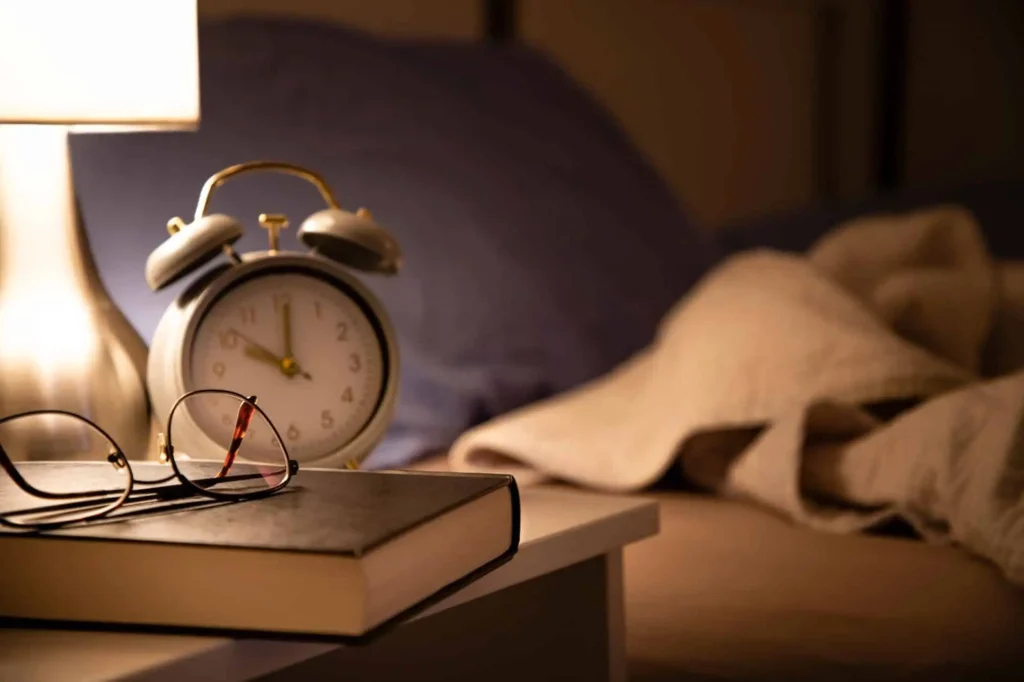
How to Keep Elderly in Bed at Night | Say Goodbye to Insomnia
How to keep elderly in bed at night? Are your dear elderly tired of sleeplessness at night? Does he take medication that affects his sleep? Does chronic anxiety or worry cause insomnia in the elderly? Has he/she recently had a traumatic experience that has affected the quality of his/her sleep? What causes hallucinations at night in elderly? There are many ways to treat insomnia in the elderly. But first of all, the problem and the cause of Insomnia in the older adult must be found.
Insomnia in the elderly is a silent pandemic. Although about 50% of the elderly struggle with this problem, in most cases the elderly do not talk about it or do not take its complications seriously. Many people assume that insomnia is a part of aging. But according to reports: “Insomnia has nothing to do with aging and is not normal.”
Insomnia occurs when a person has trouble falling asleep or having good quality sleep. Experiencing insomnia during the night makes elderly people constantly feel tired during the day and unable to do daily life tasks. To treat it, you must first find the disorder that causes insomnia. Keep reading this article from the humanhealthmag to know how to keep elderly in bed at night? Then, after finding the cause of insomnia, you can treat it properly.
What Are the Different Types of Insomnia in the Elderly?
There is no general reason for insomnia. For this reason, there are different categories of insomnia and sleep disorders based on its causes, how long it lasts, and how often you suffer from it during the month. The two main forms of insomnia, based on the cause of their occurrence, are:
- Primary insomnia
This form of insomnia means your senior is having trouble sleeping for no apparent reason, and doctors can’t rule it out as a specific medical reason. This form may be a little more complicated to treat, as doctors may have to be careful about your senior’s lifestyle and sleeping patterns.
- Secondary insomnia
When doctors can explain your sleep problems with some medical reason, you have secondary insomnia. Treatment of this insomnia begins with solving a medical problem. Some diseases that can cause secondary insomnia include cancer, depression, arthritis, addiction, and anxiety. Also, the use of some drugs affects this type of insomnia in the elderly.
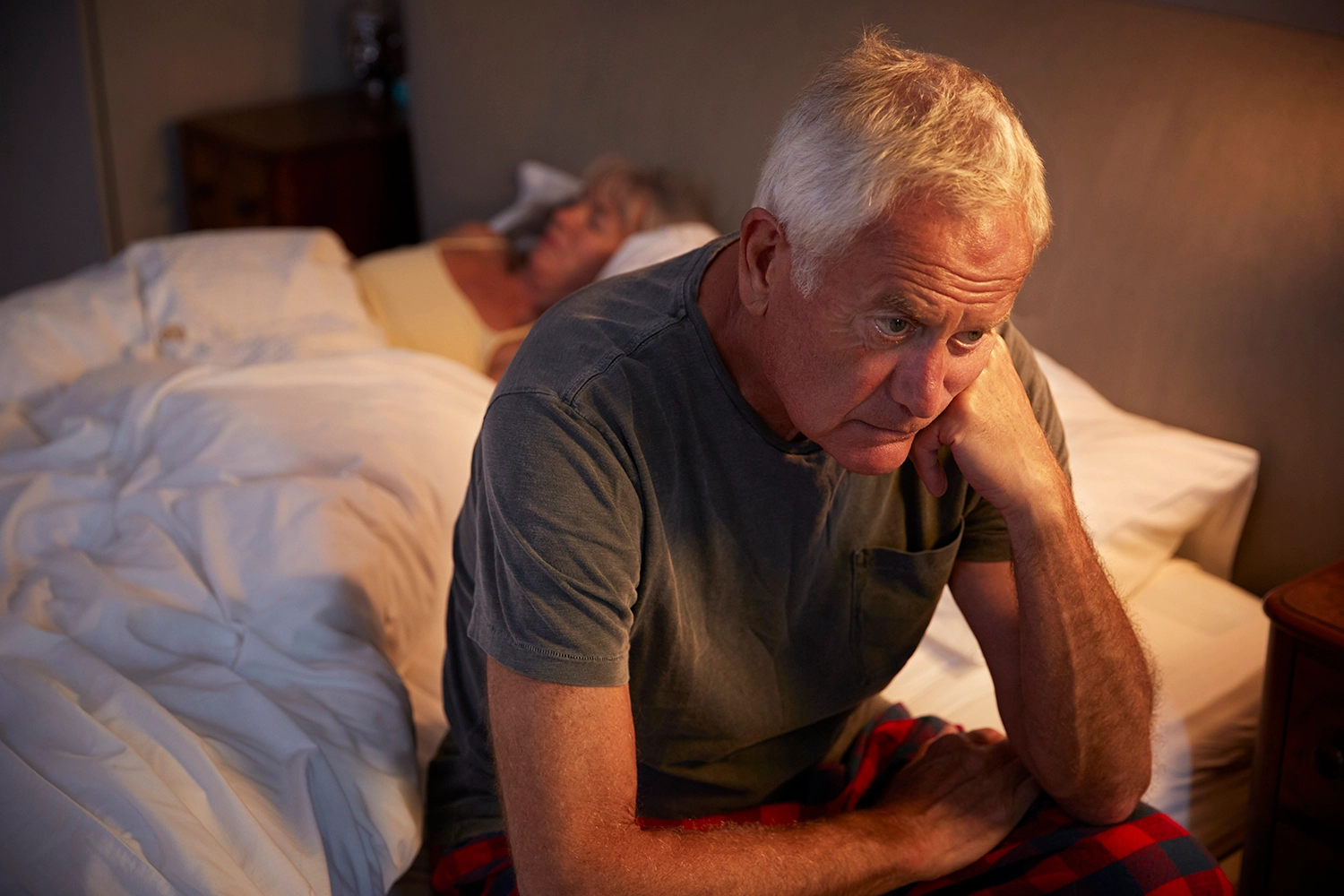
The Most Common Cause of Insomnia and Sleep Problems in the Elderly
In order to know that how to keep elderly in bed at night? We need to find the cause of insomnia in the elderly. The first change that happens in your life as you age is the change in your circadian rhythm. You may find that you get tired earlier at night and wake up earlier in the morning. These changes are caused by changes in your physical and mental activity hours that occur with aging.
While you may have heard that older people need less sleep than younger people, this is actually not true. Most elderly people need between 7 and 9 hours of sleep each night to feel fully rested. Even so, many older people may struggle to get the sleep they need. These problems exist in the elderly due to various factors:
- Poor sleep habits and sleep environment: These include irregular bedtimes, caffeine consumption before bed, and sleeping in front of the TV. Make sure your room is comfortable, dark and quiet.
- Feeling pain: One of the reasons for insomnia in the elderly is pain at night. Pain or certain health conditions such as frequent urination, pain, arthritis, asthma, diabetes, osteoporosis, night heartache and Alzheimer’s disease can disrupt sleep. Talk to your doctor about any medical problems you may have. Maybe this question will arise for you that how to manage incontinence in the elderly? We have dedicated on article from humanhealthmag to answer this question.
- Menopause: During menopause, many women find that hot flashes and night sweats disrupt their sleep. Sleep problems can persist even after menopause. Improving your daily habits, especially diet and exercise, can help.
- Side effects of medications: Older people take more medications than younger people, and a combination of medications and their side effects can disrupt sleep. Your doctor may be able to change medications to improve sleep.
- Inactivity and lack of exercise: If you are too sedentary, you may never feel sleepy or sleep all the time. Regular aerobic exercise during the day can promote good sleep and relieve insomnia in the elderly; so one answer to How to keep elderly in bed at night? is to exercise!
- Life pressure and stress: Significant life changes such as retirement, the death of a loved one or the migration of children can cause stress. Nothing lifts your mood better than finding someone you can talk to face to face.
- Lack of social interaction: Social activities, family affairs and work can keep your activity level high and prepare your body for a good night’s sleep. If you’re retired, volunteer to participate in a senior group or take an adult art class.
- Sleep disorders: Restless leg syndrome (RLS) and irregular breathing during sleep such as snoring and sleep apnea are more common in older adults and this causes insomnia in the elderly.
- Excess light: Lack of sunlight helps regulate melatonin and your sleep-wake cycle. During the day, put yourself in front of the sun, but make sure that there is no excess light when you sleep.
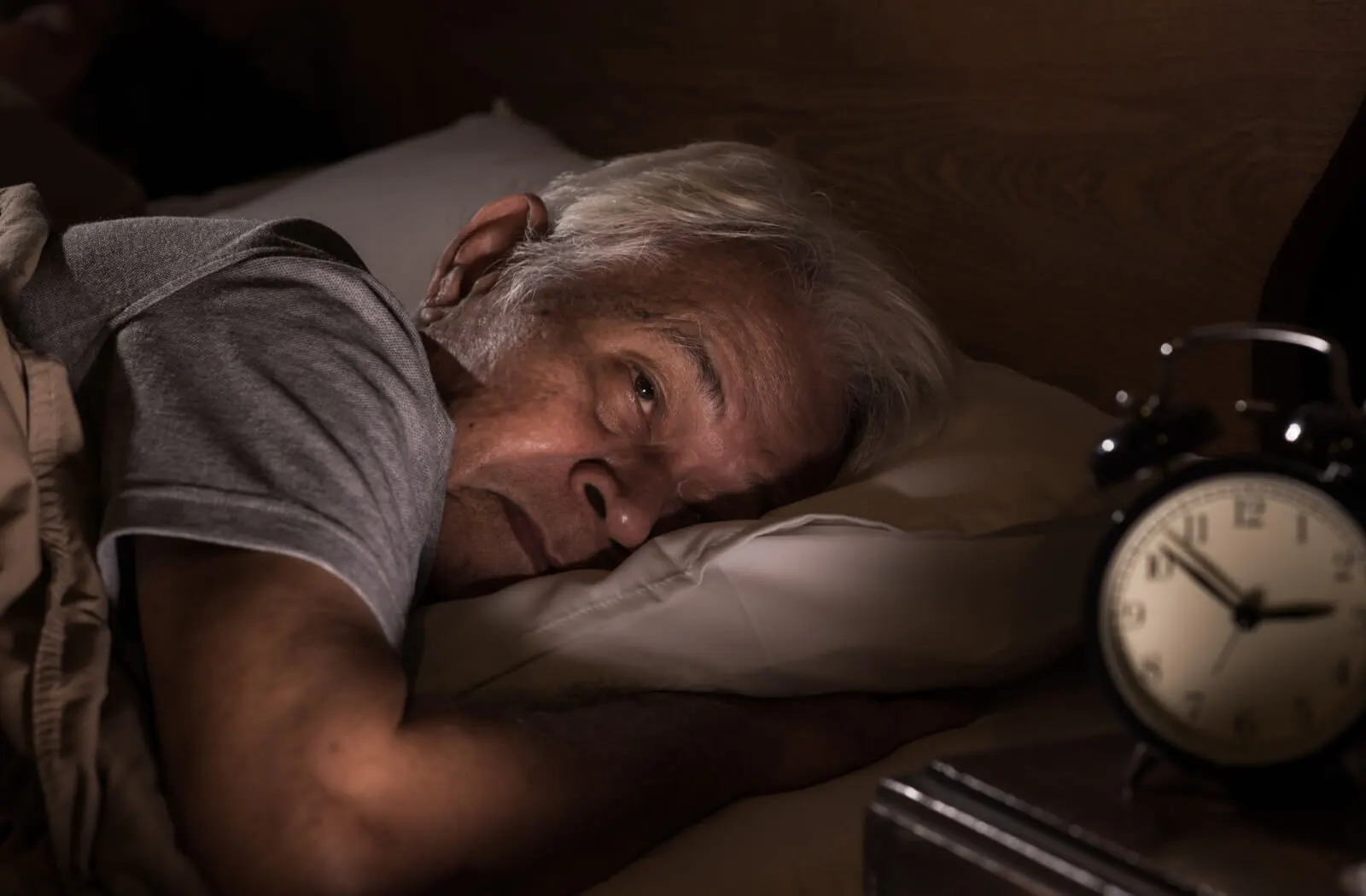
Diseases that Cause Insomnia in the Elderly
The possible medical causes that make the elderly unable to sleep comfortably and wake up at night include:
- Psychiatric disorders such as depression, anxiety and personality disorders
- Dementia
- Changes in hormone levels
- Arthritis
- High blood pressure
- Hyperthyroidism
- Cancer
- Heart failure
- Diabetes
- Asthma
- Chronic pain
- Breathing problems such as apnea syndrome (sleep snoring)
- Restless leg syndrome
How to Keep Elderly in Bed at Night?
As we said, in order to know that how to keep elderly in bed at night? We need to find the cause of it. If a disease or a medical problem causes insomnia in the elderly, you cannot apply the effective methods for insomnia in the elderly due to stress. As a result, it is very important to know the main cause of insomnia and sleep disorders. In the following, we discuss various solutions for treating sleep problems and how to get an elderly person to sleep through the night:
Using natural ways instead of sleeping pills
While sleeping pills and over-the-counter medications can be effective for short-term conditions when used sparingly, they do not cure insomnia in the elderly. In fact, these drugs can make insomnia worse in the long run.
Use a proper diet to improve sleep
Diet and exercise are two of the daily habits that affect sleep the most. Adhering to a proper diet can make the elderly have a comfortable sleep during the night. For this purpose:
- Limit caffeine later in the day. Avoid drinking coffee, tea, soft drinks and chocolate at the end of the day.
- Satisfy your hunger before going to bed. Eat a light snack such as low-sugar cereal, yogurt, crackers and cheese, or warm milk.
- Remember to avoid drinking a lot of water in the late hours of the night because the urge to urinate will make you wake up frequently during the night. Hydrating the body is absolutely necessary to maintain the health and vitality of the elderly, but it is better to drink the water the body needs throughout the day.
- Reduce the consumption of sweet foods. Eating a diet high in sugar and refined carbohydrates, such as white bread, white rice, pasta, and French fries, can cause you to wake up at night.
- Avoid eating large meals or spicy foods just before going to bed. Large meals or over-medication may lead to indigestion or discomfort. Try to eat a medium sized dinner at least 3 hours before going to bed.
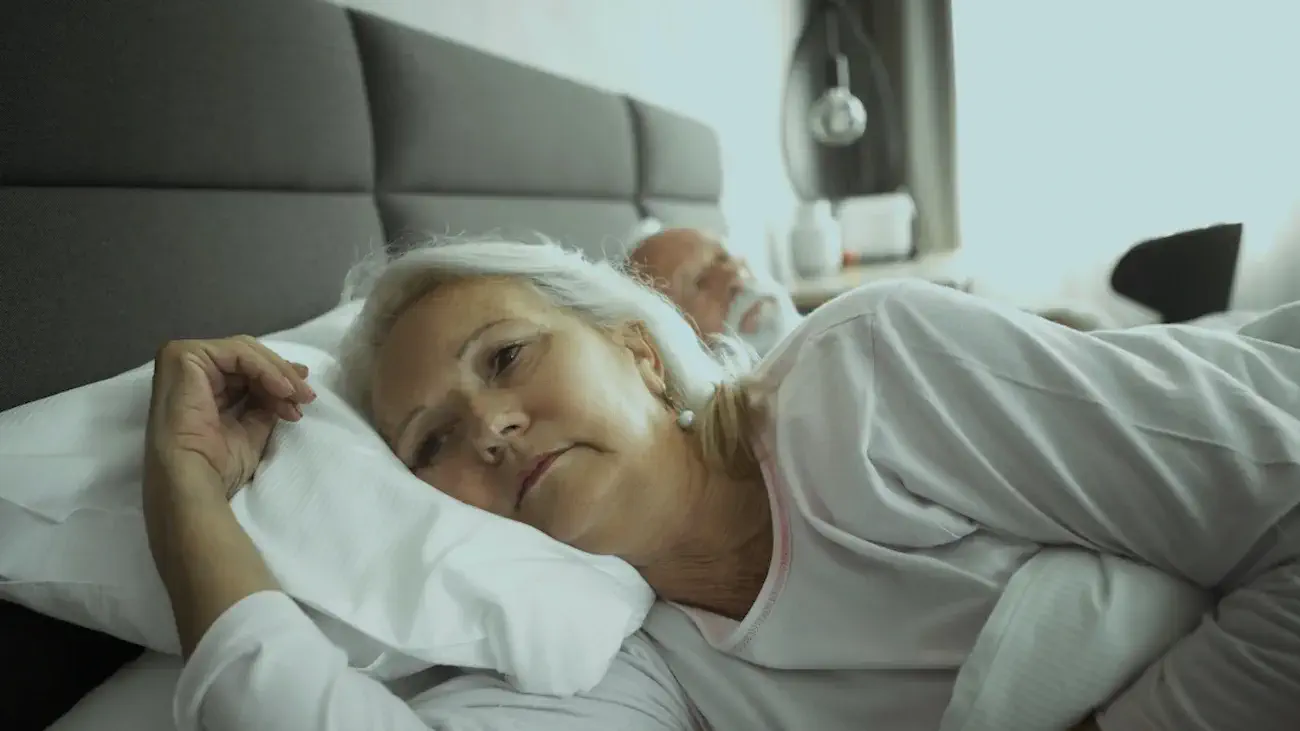
Take senior sports seriously
Exercising, especially aerobic activity, releases chemicals in the body that help promote restful sleep. Even if you have mobility issues, there are countless activities you can do to prepare yourself for a good night’s sleep. But always consult your doctor before starting any new exercise program.
Aerobic exercise helps older adults sleep better. A study at Northwestern University found that aerobic exercise led to significant improvements in sleep quality, including sleep duration, for middle-aged and older adults diagnosed with insomnia.
Participants exercised twice a week for two 20-minute sessions or one 30-40-minute session. They worked at 75% of their maximum heart rate in at least two activities, including walking or using a stationary bike or treadmill. Their sleep quality improved from poor sleep to good sleep. They reported less depressive symptoms, more cheerfulness, and less daytime sleepiness.
10 Effective Techniques for How to Keep Elderly in Bed at Night?
As you get older, it is normal to wake up during the night. If you have trouble falling asleep or you have a dear elderly person who suffers from insomnia, we will discuss effective solutions to solve this problem:
- Always turn off electrical sources that produce blue light before going to bed. TV, computer and mobile screen are the most common sources of light that disrupt sleep in the elderly. Even if a screen must be left on near you, it is better to cover it with a thick cloth.
- Avoid sleeping during the day, because sleeping during the day is one of the most important causes of sleep disorders during the night. For this reason, if you feel tired, it is better to drink a glass of cold water, eat an energizing snack or go for a short walk outside the house instead of sleeping.
- One of the most common causes of disturbed sleep in the elderly is skeletal pain, especially back pain. To compensate for this problem, you can use a small pillow between your legs to reduce the pressure on your back.
- It may not be believable, but not using a proper pillow is one of the biggest causes of insomnia in the elderly. To solve this problem, it is better to use a pillow that supports the natural curve of your neck when you are lying on your back. It is also necessary to ensure that the head is aligned with the rest of the body if you sleep on your side.
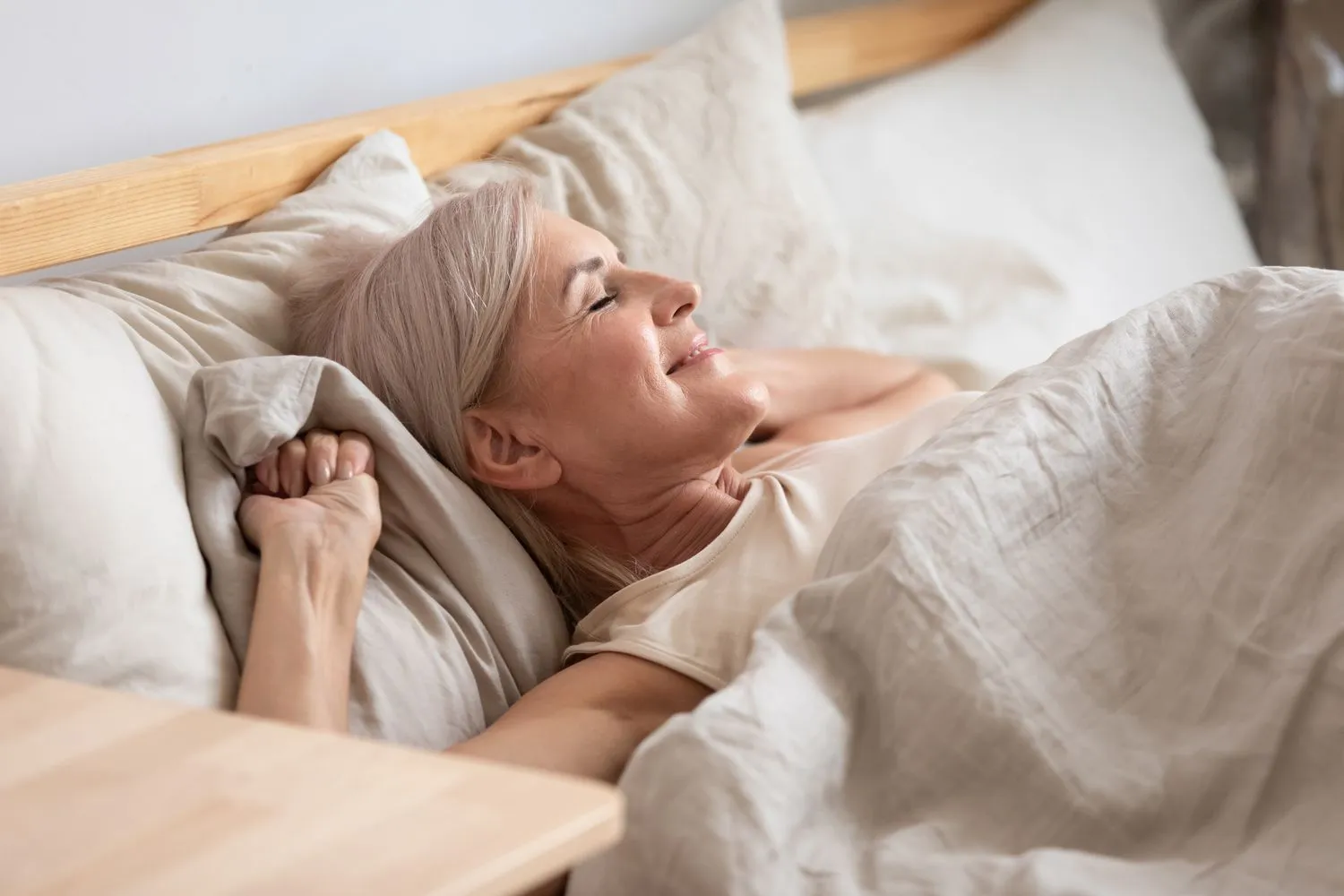
- If you are a light sleeper, use a white noise source to block out street sounds. While you want to hear the smoke detectors, you don’t want car horns and traffic to keep you up at night.
- Clear your mind of worries and problems. If you wake up feeling anxious about something during the night, Keep a diary next to your bed and write down anything that worries you and postpone worrying about it until the next day when it’s easier to deal with.
- Listen to soft music, meditate, or read a relaxing book before bed.
- Don’t stress. Emphasizing the fact that you can no longer fall asleep will encourage your body to stay awake. Try to distract your mind from different thoughts and focus instead on your relaxation.
- Aim for relaxation, not just sleep. Without getting out of bed, try a relaxation technique such as deep breathing or meditation. Although not a substitute for sleep, rest can still help the body recover.
- Do a quiet activity. If you’ve been awake for more than 20 minutes, get out of bed and do a quiet activity like reading a book. But keep the lights dim and avoid looking at mobile or TV screens.
Concluding Remarks
In this article from humanhealthmag, we talked about how to keep elderly in bed at night? All humans need rest. Insomnia of the elderly not only disturbs the rest time for himself/herself but also disturbs the rest time of his/her family. This may cause tension or quarrels within the family.
The presence of many chronic diseases among the elderly is related to the increase in the intensity of insomnia in the elderly. More than 50% of seniors report having sleep problems, about 25 million seniors suffer from insomnia. The elderly may experience many insomnias during the night due to various chronic diseases such as cancer, Alzheimer’s and heart diseases. The elderly should be especially aware of these causes in order to be able to prevent them.
In your opinion, what other solution is there to answer the question of how to keep elderly in bed at night? What do you suggest for this issue? We are eager to share your opinions and experiences with us and other users in the comments section.

FAQs
Why Can’t Elderly People Sleep at Night and Wake up Continuously?
There are several reasons for this. Including natural changes in sleep patterns with age, underlying diseases such as sleep apnea, chronic pain, anxiety and depression. Medicines and stimulants can also affect the quality of sleep.
What Factors Make the Elderly Get out of Bed During the Night?
There are many reasons for this, including the need to go to the bathroom, thirst, pain, too cold or hot environment, breathing problems and feelings of insecurity. Also, some neurodegenerative diseases like Alzheimer’s can cause confusion and restlessness at night.
How to Keep Elderly in Bed at Night?
Different methods can be used to improve the night sleep of the elderly. Establishing a regular sleep routine, providing a quiet and dark sleeping environment, adjusting room temperature, avoiding caffeine and nicotine during the day, engaging in regular physical activity during the day, and consulting with a physician to evaluate and treat underlying medical problems are among these strategies.
When Should You See a Doctor?
If the elderly’s sleep problems are persistent and severe and affect their quality of life, it is better to see a doctor.
